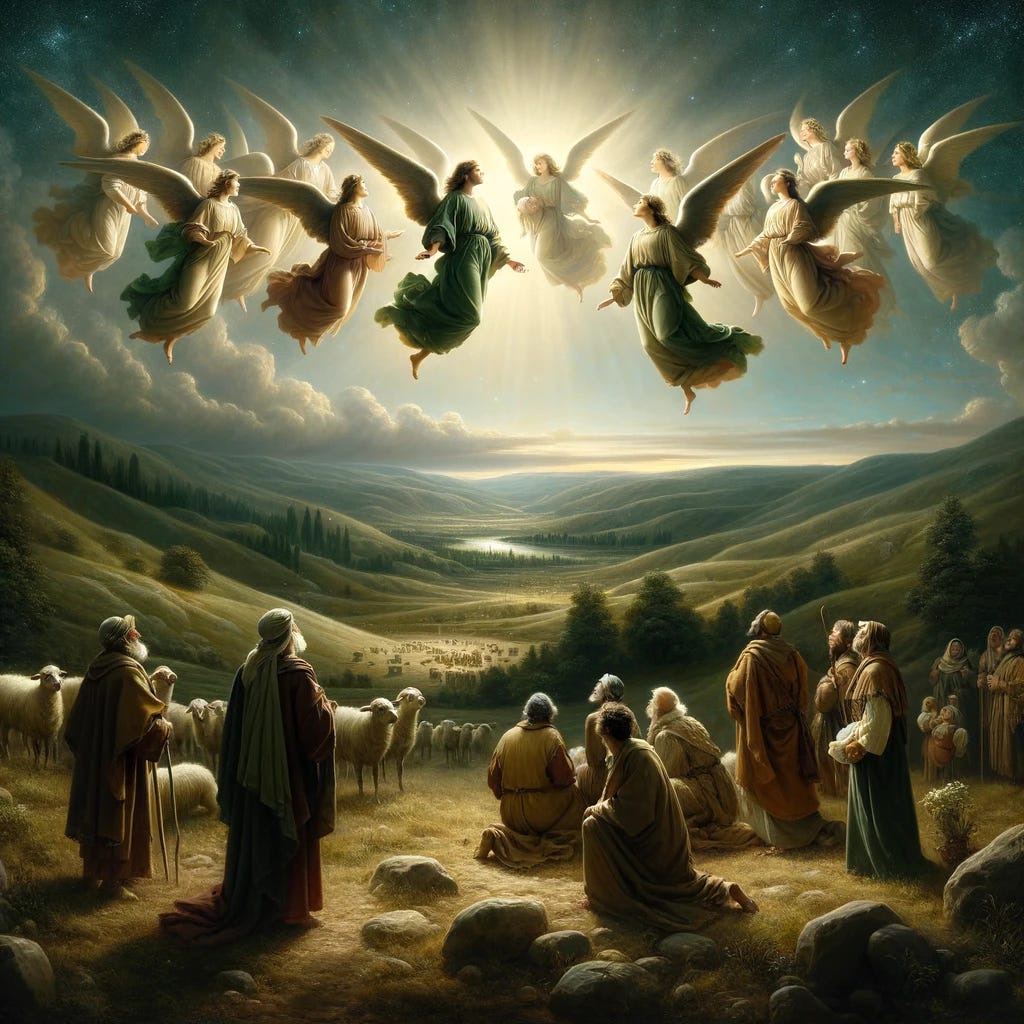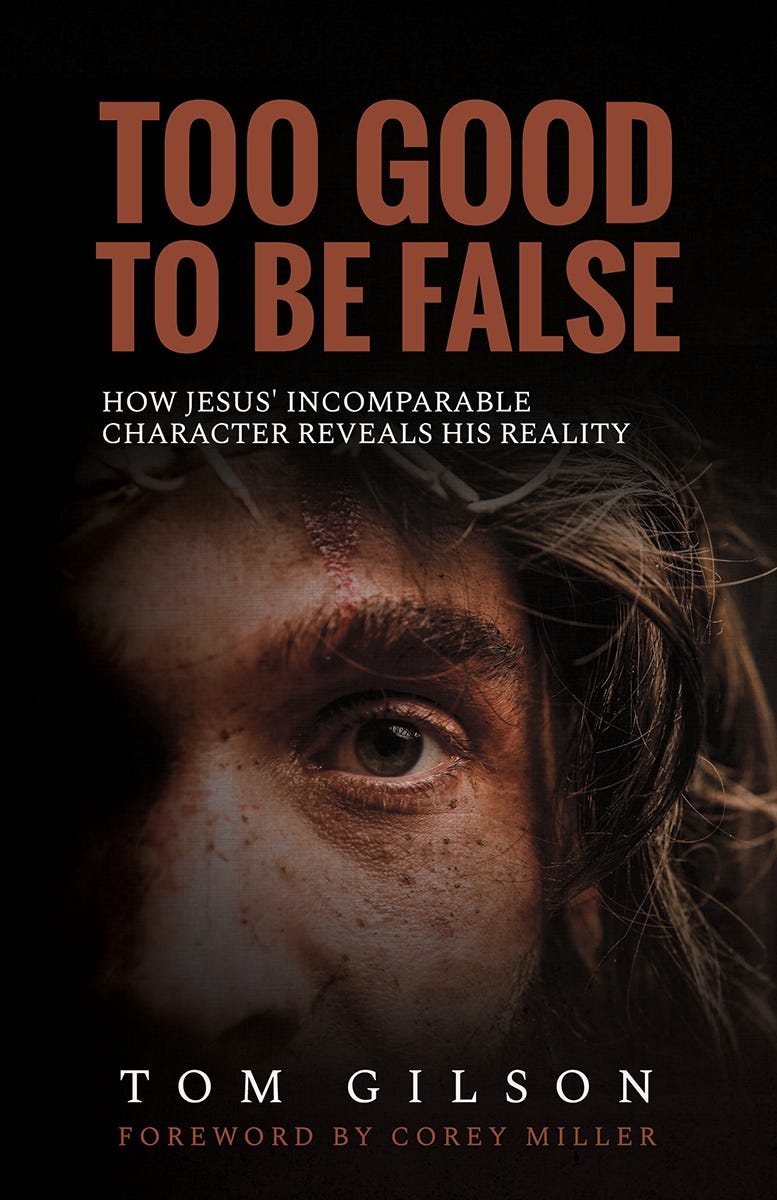One often-unsung stanza from Charles Wesley’s hymn “Hark! The Herald Angels Sing” is this one:
Come, Desire of nations, come! Fix in us Thy humble home: Rise, the woman’s conqu’ring seed, Bruise in us the serpent’s head; Adam’s likeness now efface, Stamp Thine image in its place: Final Adam from above, Reinstate us in Thy love.
Charles’ brother John Wesley is known for his theology of Christian perfection, drawn from passages such as Matthew 5:48 (being perfect like God ) and 2 Peter 1:4 (being partakers of the divine nature). Charles likewise held to a variation on this theme. Both Wesleys drew on the long-standing tradition of deification or theosis, located most notably in the Eastern Orthodox tradition. We can find this doctrine of deification in Roman Catholicism as well. Does Protestantism have any share in this tradition? As it turns out, yes it does.
“That We Might Become God”?
Going back to the fourth century, we see this kind of language in a leading defender of Christian orthodoxy, Athanasius. In his de Incarnatione, he affirmed: “For the Son of God became man so that we might become God.”[1] Even Protestants have used this language to talk about sanctification.
Of course, the doctrine of deification isn’t anything like Mormonism, which breaks down the Creator-creature distinction—a glaring heresy. For example, Lorenzo Snow, the fifth Latter Day Saints president, declared: “As man is, God once was; and as God is, man may become.” Within the bounds of orthodoxy, Christian deification has to do with participating in the divine life through God’s gracious gift so that we, by the Spirit, may become conformed to the image of Christ (2 Corinthians 3:18; 4:4-6; Galatians 4:19; etc.). As we look into our Protestant theological sideview mirrors, this doctrine of deification may be closer than it appears.
There is a biblical theology behind it. Because humans bear the image of God, we are equipped to rule creation with God (Genesis 1:26-28; Psalm 8) and to walk with/worship God, just as Adam and Eve did in the temple sanctuary of Eden (Genesis 3:8). God made humans to be priest-kings to fully live out the divine image—as co-regents with God and as worshiping priests in his presence. Our earliest ancestors failed to fulfill this vocation. After the exodus when God called his son Israel out of Egypt (Hosea 11:1), God made a covenant with them at Sinai. God called them to be a kingdom of priests (Exodus 19:6). The nation of Israel, however, ended up failing, proving to be a disobedient son (Isaiah 1:2-3; 30:9; Mal. 1:6).
In the fullness of time, Jesus of Nazareth enters into this theodrama in human history. He faithfully lived out Adam’s and Israel’s story. He is the new Adam—the leader of a new humanity who ushers in a new creation through his resurrection (the eighth day of creation, as Irenaeus called it). He was also the true Israel—the faithful and well-pleasing Son (Mark 1:11) to lead a new covenant community through a second exodus and to inaugurate a new covenant with people from every tribe, tongue, people and nation. So, he successfully lived out Adam’s and Israel’s story. He came to restore creation and to lead his people out of bondage to sin and Satan in a new exodus so that we might no longer be slaves to sin (Romans 6).[2]
In Christ, God is doing a great work to restore and rebuild his fallen creation and restore us to something glorious—something that must be achieved by divine grace rather than human self-effort. As the hymnwriter Joseph Hart wrote:
Come, ye weary, heavy laden, Lost and ruined by the fall; If you tarry till you’re better, You will never come at all.
Protestants and Theosis
Whether or not we apply the term theosis to ourselves, keep in mind that this doctrine in some form is affirmed by a goodly array of influential Protestant thinkers. Theologian and biblical scholar Michael Reardon and I are coediting a forthcoming volume with IVP Academic entitled “Transformed into the Same Image”: New Investigations into the Doctrine of Deification. In it, various scholars like Alister McGrath, Robert Garcia, Ben Blackwell, and others explore how noted Protestants have appropriated the doctrine of deification: Martin Luther, John Calvin, Jonathan Edwards, John and Charles Wesley, C.S. Lewis, the sometimes-misunderstood Witness Lee,[3] and so on.
Consider Luther, who was as good a Protestant as any. He followed the logic and language of Athanasius in a 1526 sermon:
God pours out Christ His dear Son over us and pours Himself into us and draws us into Himself, so that He becomes completely humanified [ganz und gar vermenschet wird] and we become completely deified [ganz und gar vergottet werden] and everything is altogether one thing, God, Christ, and you.
In another sermon (1525), Luther wrote:
that we are so filled with “all the fullness of God,” that is said in the Hebrew manner, meaning that we are filled in every way in which He fills, and become full of God, showered with all gifts and grace and filled with His Spirit, Who is to make us bold, and enlighten us with His light, and live His life in us, that His bliss make us blest, His love awaken love in us. In short, that everything that He is and can do, be fully in us and mightily work, that we be completely deified [vergottet], not that we have a particle or only some pieces of God, but all fullness. Much has been written about how man should be deified; there they made ladders, on which one should climb into heaven, and much of that sort of thing. Yet it is sheer piecemeal effort; but here [in faith] the right and closest way to get there is indicated, that you become full of God, that you lack in no thing, but have everything in one heap, that everything that you speak, think, walk, in sum, your whole life be completely divine [gottisch].
Whatever we may think of the term “deification” or being “divinized,” Jesus Christ came into the world to bring about a transforming work in us. He came to save us from our sins, and it is his goal that his image would be stamped upon us. As Paul wrote to the Galatians, “My children, with whom I am again in labor until Christ is formed in you…” (Gal. 4:19).
May we during this Christmas season consider not just the celebration of the entrance of a great Savior into the world, but also the transformative work he desires to do in each of us—a grand and glorious work indeed! Let us think more deeply about what it means to be filled up to all the fullness of God (Ephesians 3:19). You may not use the term divinization or theosis, but let us consider what it means to “become partakers of the divine nature” (2 Peter 1:4).
To that end, let me finish with a few stanzas from various Charles Wesley hymns that we may ponder….
“Since the Son Hath Made Me Free” reflects this doctrine of theosis:
Heavenly Adam, life divine, Change my nature into thine; Move and spread throughout my soul, Actuate and fill the whole; Be it I no longer now Living in the flesh, but thou.
“Let Heaven and Earth Combine”:
He deigns in flesh to appear, Widest extremes to join; To bring our vileness near, And make us all divine: And we the life of God shall know, For God is manifest below.
“All-Wise, All-Good, Almighty Lord”:
Didst thou not in thy person join
The natures human and divine,
That God and man might be
Henceforth inseparably one?
Haste then, and make thy nature known
Incarnated in me.Notes
[1] Athanasius, de Incarnatione 54.3.
[2] See N.T. Wright, Paul (Minneapolis: Fortress, 2005).
[3] See the Christian Research Journal issue “We Were Wrong” (vol 36, no. 6, 2009), which was devoted to reversing its judgment on Witness Lee, affirming him as orthodox and repudiating its earlier charges of heterodoxy against him: https://www.equip.org/christian-research-journal/we-were-wrong-2/.
— Paul Copan is the Pledger Family Chair of Philosophy and Ethics at Palm Beach Atlantic University. Learn more about Paul and his work at paulcopan.com.
[sponsored]
Visit Point of View to listen to new and previous shows and to read or hear our Viewpoint commentaries.
Too Good to be False
How Jesus' Incomparable Character Reveals His Reality
What if we take the story of Jesus seriously—as a story? Skeptics urge us to do that—it’s “only a story,” they say, a legend just like many other god-stories from ancient days. Why do we treat it as anything more than that? Too Good to be False takes up that question with an approach no author has taken in close to a century.
This book shows that although the skeptics’ question may be a fine one, the answer they give is as far from truth as it could be. Jesus’ character is unlike any other. No other hero—whether of history, myth, imagination, or legend—has loved as he loved, led as he led, cared as he cared, or understood himself as Jesus understood himself. Christians reading this book will encounter Jesus in fresh, worshipful new ways, and skeptics may discover his character is too unique, too consistent, and entirely too good to be false.
“Engaging … exhilarating. … Tom makes the compelling case that Jesus couldn’t possibly be the product of mere legends because he is quite literally too good not to be true. This might be the most surprising and refreshing book you’ll read this year!”
— Lee Strobel, New York Times bestselling author, and founding director of the Lee Strobel Center at Colorado Christian University
“I have never approached the gospels in this way and, with Gilson’s guidance, I have come to love, respect, and worship Jesus with renewed vigor and insight. Honestly, this book must be in your library.”
— J. P. Moreland, Distinguished Professor of Philosophy, Talbot School of Theology, Biola University; author of The Soul: How We Know It's Real and Why It Matters
Find Too Good to Be False at Amazon and other major booksellers.
"...LIKE GOD?": Post Modern Infatuation With New Age and Neo-Spiritism
“In this thorough and well-researched work, David Sonnesyn brings a lawyer’s mind to the task of exposing and challenging the leading false worldviews of our day. He leaves no heresy unexposed and exposes all of them to the liberating truth of Christianity.”
— Douglas Groothuis, Ph.D., Professor of Philosophy and Apologetics at Denver Seminary, author of Christian Apologetics: A Comprehensive Case for Biblical Faith; Walking Through Twilight: A Wife’s Illness—A Philosopher’s Lament; Philosophy in Seven Sentences; and twelve other books.
Find . . . Like God? at Xulon Press, Amazon, and other major booksellers.
Natural Law
A Short Companion
David VanDrunen’s Natural Law: A Short Companion outlines what Scripture teaches about natural law. Scripture never uses the term “natural law,” but it repeatedly refers to the reality of natural law or assumes its existence. The existence of natural law underlies what Scripture says about God’s own nature, the cosmic order, the image of God, human community, the gospel of Christ, and the final judgment. Moreover, the story of Scripture from the original creation to the new creation wouldn’t hold together without natural law. Through this work, readers should come to know their Bibles better and know God better.
“As the public square spirals, natural law could not be more relevant. Without it, we lose the ability to persuade non-Christians of a moral framework so critical to the survival of human dignity and a just society. Employing natural law in the public square can be intimidating, but VanDrunen’s accessible, lucid book is the guide every Protestant needs to recover natural law today.”
— Matthew Barrett, professor of Christian theology, Midwestern Baptist Theological Seminary
Find Natural Law: A Short Companion at Amazon, B&H Academic, and other major booksellers.
Would you like to grow in your knowledge of and ability to defend the Christian worldview?
Would you welcome the opportunity to learn from world-class Christian scholars and apologists?
If so, please consider subscribing to The Worldview Bulletin. Use the link below and receive 25% off of a one-year subscription!
You’ll receive exclusive articles, access to our full archive of past essays, the ability to join our video tutorials and presentations, as well as stream them at your convenience.
You’ll also be supporting our work of equipping Christians around the world to contend for the faith and demonstrating the truth, goodness, and beauty of the Christian worldview to nonbelievers.
If you prefer to give a one-time donation instead, you can do so here.
Thank you!
“The Worldview Bulletin offers readers compelling essays on apologetics, morality, and culture written by top evangelical thinkers.”
— Douglas Groothuis, professor of philosophy, Denver Seminary
“I find The Worldview Bulletin very stimulating and would encourage all thinking Christians to read it.”
— John Lennox, emeritus professor of mathematics, University of Oxford, emeritus fellow in mathematics and philosophy of science, Green Templeton College, author of Cosmic Chemistry: Do God and Science Mix? (Lion)
“It has made such a difference to me to realise that my Christian faith is intellectually respectable.” — Duncan Cooke, M.D.
“I just wanted to give a big shout out to you for creating this awesome newsletter. . . . I read it regularly with great joy and gain, not least because the articles manage to be intellectually thorough whilst spiritually stimulating. And my standards are high, being a professional philosopher.”
— Alin C., Lausanne, Switzerland
“The Worldview Bulletin is a must-have resource for everyone who’s committed to spreading and defending the faith. It’s timely, always relevant, frequently eye-opening, and it never fails to encourage, inspire, and equip.”
— Lee Strobel, New York Times bestselling author of more than forty books and founding director of the Lee Strobel Center for Evangelism and Applied Apologetics
“The Worldview Bulletin is a wonderful resource for the church. It’s timely and helpful.” — Sean McDowell, associate professor in the Christian Apologetics program at Talbot School of Theology and author of The Fate of the Apostles: Examining the Martyrdom Accounts of the Closest Followers of Jesus (Routledge)
Advertise in The Worldview Bulletin
Do you have a ministry, book, course, conference, or product you’d like to promote to 6,884 Worldview Bulletin readers? Click here to learn how. We’re currently booking for January-February.







